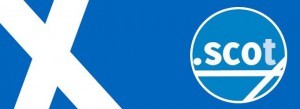Scotland (virtually) breaks away from the .UK!

 One of the most important benefits of the new domain extensions is that cultural and national communities that claim independence without actually getting it can gain virtual independence using their own Top-Level Domain. With .SCOT, Scotland has definitely set a new trend.
One of the most important benefits of the new domain extensions is that cultural and national communities that claim independence without actually getting it can gain virtual independence using their own Top-Level Domain. With .SCOT, Scotland has definitely set a new trend.
Among the hundreds of new domain extensions that are or will soon be available for registration, many give a sense of identity to cultural and national communities. This autonomy has often been claimed for decades, or even centuries, but has never been obtained in the political structure in place. In other cases, people are not really claiming independence, but rather the recognition of a culture, based on language, shared cultural heritage or a geographical location.
The best examples are: .krd, for Iraqi Kurdistan; .irish, for Irish culture, spread by the many Irish communities all over the world; .frl, for the preservation of the Frisian language and culture; .cymru, for the Welsh culture and language...
Scotland seems to have become a figurehead for this (virtual) symbolic independence. In a referendum held in September 2014, citizens voted against independence from the United Kingdom (55% vs. 44%). However, since then, support for independence, and the Scottish National Party continued to grow. And now, the Scottish government has made a very important step forward.
From now on, it will no longer use the .gov.uk web address and all the services will be transferred to the .scot TLD. “This will be a visible symbol of the Scottish Government’s online presence and our involvement with the Scottish communities from all over the world who choose to express their identity or affinity online”, said Deputy First Minister John Swinney.
A courageous move by the Scottish Government. After all, governments can indeed play a very important part in the credibility of a gTLD inspired by culture or a geographical location. Their support can lead to digital autonomy or independence, even if it cannot be obtained in the current political system.
This might set a good example for the Flemish government, which has not yet decided whether or not to transfer its own services, or at least the cultural aspects of its services, from the “fod.gov.be” umbrella domain, which sounds like a horrible piece of civil servant jargon, to a more user-friendly .vlaanderen address...


